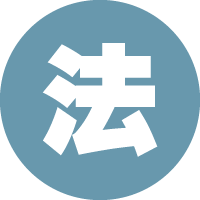US$1,500,000+
Our client (Party A) is a shareholder in a 50/50 joint venture company in Singapore (Company). The other shareholder in the joint venture company (Party B) has the same ultimate beneficial owner as Party C, which is the main client of the Company.
Party C has failed to make regular payments to the Company and the accumulated debt has reached more than USD1.5M when our client contacts us.
Party D, an independent company, is the main supplier of the Company and due to the absence of payments from Party C to the Company; the Company has not been able to pay the amounts due to Party D (about USD1M). Party D has already issued a letter of demand and a statutory demand to the Company.
CHALLENGE
Initiative is required to recover the amounts due from Party C and answer to Party D’s statutory demand. In the absence of initiative and should liquidation of the Company ensue, the personal liability of the directors could be sought after if they have not acted diligently to collect the debt from Party C.
But it seems challenging to obtain a decision from the board of directors of the Company: it has 3 directors, one appointed by each of Party A and Party B and the third one is a nominee director resident in Singapore as required by Singapore law. The director appointed by Party B should be conflicted on any question regarding the debt collection due to the affiliation of Party B and Party C. There is no shareholders agreement.
ACTIONS
We advised our client, Party A, that the director of the Company appointed by it should take various initiatives in his capacity of director of the Company:
- send a letter of demand to Party C; and
- call for a urgent meeting of the board of the Company to decide on the 3 points below:
- response of the Company to the statutory demand from Party D;
- review the settlement offer received from Party C in response to the letter of demand sent by Party A (Party C reacted immediately to the letter of demand with a new settlement plan for the payment of its debt);
- delegate authority to the director nominated by Party A to act on behalf of the Company for debt collection against Party C.
OUTCOME
After being rescheduled a couple of times, the board meeting of the Company could take place with the directors representing Party A and Party B attending. The board decided:
- to accept the new settlement plan received from Party C;
- to reply to Party D’s statutory demand with its own settlement plan, based on the settlement plan received from Party C;
- to delegate authority to the director nominated by Party A to act on behalf of the Company for debt collection against Party C, including to take legal action, should Party C fail to abide to the new settlement plan.
Party C paid its debt to the Company more or less according to the terms of the new settlement plan. The whole amount due to Party D could be repaid within 2 months.


